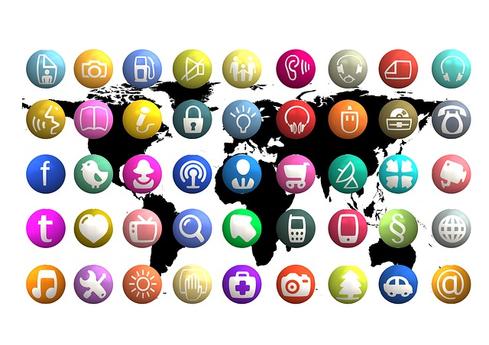Connected machines will spark new negotiations along the supply chain.

This column is a quick followup to our recent in-depth article on The Internet of Things: What's Holding Us Back
Picture a roundtable discussion about the Internet of Things and who should get access to the data it generates. Who do you picture at that table, clamoring to get access to (or keep away from) the data created by this growing network of devices?
Me, I go right for the dramatic tension and picture a chief marketing officer, an ACLU lawyer, and an NSA analyst who identifies herself only as Susan.
Most companies will face a reality that's far less dramatic but maybe scarier. Take this scenario: In walks your banker. And insurance agent. And the dealer who sells and repairs your equipment. And the manufacturer who makes replacement parts and sells a competing product. And one of your customers.
Most of the IoT-related discussion around who controls the data focuses on public policy, such as whether to regulate what utilities can do with the customer data they collect via smart meters. And those discussions will be fascinating to watch.
But a huge round of negotiating will happen behind closed doors, where companies bang heads internally and with suppliers, partners, and customers over operating and performance data that has never existed before -- data that one party wants and another would like to keep to itself.
Take the example of your company's banker, who arranges the leasing deal for a piece of equipment your company will use for 10 years. The banker's profit pivots on how much that machine will be worth in 10 years. So what if, when a machine came back subpar, the banker could run analytics on the data your company keeps on the machine's daily performance and ask: "Why did you allow that level of vibration to continue for six weeks without repairing it? You violated your maintenance clause."
I had a discussion on this topic with two execs from M2Mi -- vice president of business development Sarah Cooper and marketing vice president Manu Namboodiri. M2Mi makes a software platform aimed at making Internet of Things (machine-to-machine) implementations easier and more secure, including sharing the data generated. One piece of that security is routing data to different parties based on their access rights.
The complexity will grow as machines make more automated decisions about whom to share data with, Cooper says. Machines are even starting to get their own credit cards with spending limits, so that when a machine's sensors show specific warning signs, the machine can contact a repair company directly and authorize a crew to come out and spend up to a certain amount to fix it.
However, when it comes to a customer sharing its data with a product supplier, the power in the relationship is clear, says GE Power & Water CIO Jim Fowler. The GE unit learns a lot by studying operating data from customers' gas and wind turbines, but those customers provide that data only if GE's analysis can help them boost profits, such as by burning less fuel and generating more power. "My customers are willing to let me have access to the data because I give something back in return of value," Fowler told InformationWeek Conference attendees last month. "And I have to keep doing that."
These data-access discussions have played out many times before around sharing data on factors related to sales, inventory, and production costs. What's new is that, as we put sensors on more "things" and build more connections among devices, it will get increasingly difficult to say, "We just don't have that data." So technology leaders need to prepare for the hard discussions ahead, understanding the relationships involved and their companies' technology capabilities to collect, share, and restrict access to the new kinds of data they're generating.
Our InformationWeek Elite 100 issue -- our 26th ranking of technology innovators -- shines a spotlight on businesses that are succeeding because of their digital strategies. We take a close at look at the top five companies in this year's ranking and the eight winners of our Business Innovation awards, and we offer 20 great ideas that you can use in your company. We also provide a ranked list of our Elite 100 innovators. Read our InformationWeek Elite 100 issue today.
About the Author(s)
You May Also Like







